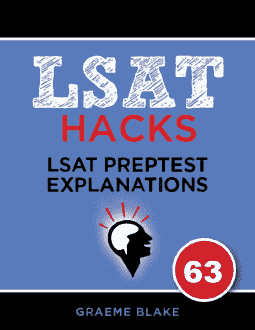QUESTION TEXT: Parent: Pushing very young children into rigorous study…
QUESTION TYPE: Must Be True
CONCLUSION: We shouldn’t push very young children into rigorous study [in an effort to make the nation more competitive].
REASONING: Curricula for young children must meet their developmental needs. Rigorous work can make young children burn out. It’s unfair to children to make them work so hard and it might work against us. Rigorous study can be appropriate for secondary students.
ANALYSIS: Process of elimination works well on this question. A and B are about the high school curriculum and we have very little info about that. C is about the requirements for competitiveness: we don’t know much about that either. Lastly, E contradicts the argument’s assertion that rigorous study could actually hurt us in the long run.
Only D is left. This answer is hard to be sure about, so it’s worth checking the stimulus to find the key term “developmental needs” and refresh your memory on how it was relevant.
___________
- We don’t know. Maybe the secondary school curriculum is already rigorous enough.
- Same as A. We have no idea if the secondary school curriculum is good or bad.
- Hard to say. Maybe we have such an advantage that we could be competitive even if we fail to meet the developmental needs of some students.
- CORRECT. We know that curricula for very young students must address their needs. But a rigorous curriculum could burn them out. So a rigorous curriculum doesn’t meet the needs of young students.
- The argument actually argues that a very rigorous curriculum could reduce our competitiveness by burning out young students.


Hey Graeme,
I was choosing between C and D… I chose wrong. I’m thinking about ways to avoid making this mistake in the future and it seems that correct answers containing strong language like “only if” will rarely be correct unless there is conditional logic available.
Is that a fair assumption?
It’s true that, often, answer choices that either make very broad generalizations or are extremely restrictive are incorrect. However, it’s not a good idea to rule out answer choices on that basis unless you’re extremely pressed for time–especially since the LSAT often tricks students into the wrong answer choice by playing on the fact that a lot of people make that assumption about strong statements being incorrect.
In order to choose between 2 answer choices on MBT questions, your best bet is to revisit the precise language of the stimulus and ensure that the answer choice neither overstates claims in the stimulus, nor unfairly restricts those claims.